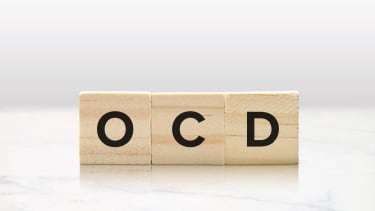
TMS for Obsessive Compulsive Disorder
TMS Therapy for OCD
Obsessive-compulsive Disorder (OCD) is a challenging condition characterized by persistent, unwanted thoughts, known as ‘obsessions’, and mental acts or repetitive behaviors, also known as ‘compulsions’. These intrusive thoughts and rituals can significantly impact a patient’s life, hindering their ability to engage in everyday activities.
Patients feel driven to engage in compulsive acts to ease stress. Even consciously ignoring bothersome thoughts doesn't stop them from returning to the patient's mind. This leads to a 'ritual-based' habit that can become a vicious cycle. OCD patients usually endure feelings of being ashamed, embarrassed, and frustrated about the condition, significantly affecting their quality of life.
Signs of OCD
People with OCD often struggle with a range of symptoms that can consume a significant amount of their time and energy. They are as follows:
Obsessions:
- Fear of contamination or germs
- Questioning and struggling to cope with ambiguity
- Intrusive, unwanted thoughts of harm or aggression
- Concerns about orderliness and symmetry
- Unwanted, disturbing sexual or religious thoughts
Compulsions:
- Excessive hand washing or cleaning
- Repeating rituals or routines
- Counting or arranging items in specific ways
- Mental rituals, such as praying or silently repeating words
- Avoiding situations that trigger obsessions, like shaking hands
The Benefits of TMS Therapy for OCD

Deep Transcranial Magnetic Stimulation (dTMS) has shown promise as a treatment for OCD in people who don’t find sufficient relief from medication and cognitive-behavioral therapy. A recent study conducted by Tel Aviv University compared active dTMS treatment with sham treatment in 87 participants with OCD. Over 6 weeks, those receiving active treatment experienced more remarkable symptom improvement than the sham group sis, with sustained benefits observed at a four-week follow-up. The study utilized a novel approach to activating obsessive thoughts during treatment sessions. Its results suggest that dTMS may offer significant relief for individuals with treatment-resistant OCD.
TMS for OCD is a tried-and-tested method that helps patients cope well with OCD. It also provides them with the following crucial benefits:
- No anesthesia required
- Fast treatment
- Significant improvement in symptoms.
- Minimal side effects compared to antidepressant medications
- No memory impairments
Our Approach to TMS Therapy for OCD
At Shore Clinical TMS & Wellness Center, we understand the profound impact OCD can have on one's quality of life. Hence, our techniques are focused and effective to help alleviate symptoms and enhance the patient's overall well-being.
Our TMS therapy for OCD involves a comprehensive program designed to address the individual needs of people grappling with this challenging condition. The treatment utilizes magnetic brain stimulation for OCD patients to deliver magnetic pulses to targeted areas associated with OCD. Our TMS physicians adopt a systematic approach to treatment, which is as follows:
Patient Evaluation: Our experts determine the stimulation dose tailored to the patient's brain cells during the initial consulting sessions. This dose is continually reassessed throughout the treatment course to ensure optimal results.
Precise Stimulation: Once the placement and stimulation doses are established, the TMS machine delivers precise impulses to specific brain regions linked to OCD. Treatment is non-invasive as with all TMS procedures, and patients remain fully alert throughout the process.
Duration Finalization: We follow a recommended TMS program for OCD, typically involving sessions five times a week over an initial six-week period, followed by three weeks with reduced session frequency.
Evaluating Outcomes: We track the patient’s progress to ascertain reductions in obsessive thoughts, compulsive behaviors, and overall improvement in their quality of life.